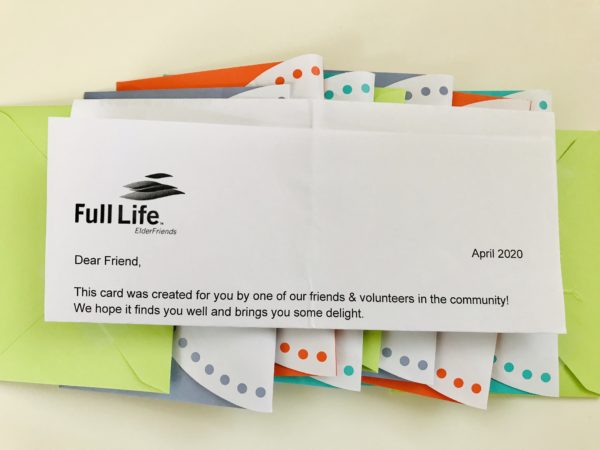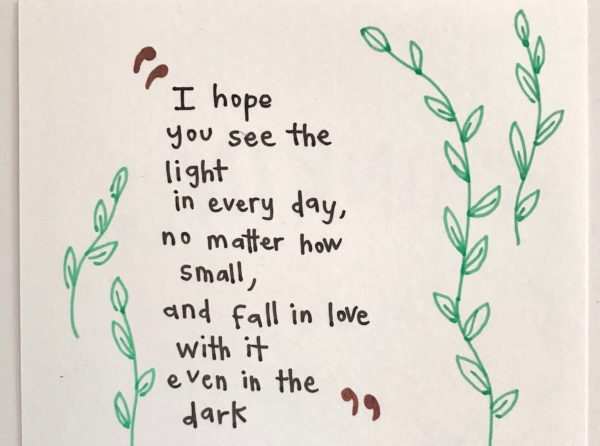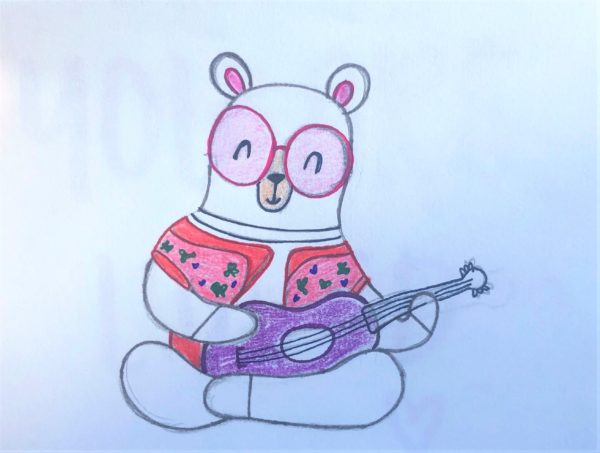Avoiding loneliness

Pandemic requires new communication strategies
We are headed into our 10th month of living with the new reality of staying home as the safest way to protect ourselves and our loved ones. But there’s a fatigue settling in with the troubling reality that the proven methods to keep older adults safe — physical distancing, staying home, and limiting contacts — can also take a toll by creating or intensifying feelings of isolation and loneliness.
That reality touches us all. At ElderFriends we’ve learned some lessons that we hope will help you connect productively with your loved ones and neighbors this fall and winter.
Phone calls & letters
 While some are tech savvy, other older adults either lack access or interest in using video chats and Facetime calls.
While some are tech savvy, other older adults either lack access or interest in using video chats and Facetime calls.
Fortunately, we’ve learned that low tech solutions like phone calls and letters are still incredibly meaningful and make a positive impact. Elders tell us that receiving regular letters and cards of encouragement is uplifting and reminds them they are not alone
Simple telephone calls also ease isolation for some and provide reassurance for others. Conversations are wonderful ways to connect. Just remember: Not everyone enjoys lengthy phone conversations, and others can’t engage in them easily, so it’s important to be open to what works best for the person you want to connect with.
If you want to establish regular phone calls with an older friend or family member, that’s great. But remember to also think about the types of non-verbal cues that are lost in a telephone environment. Think about ways that you can display active listening over the phone — by giving verbal indication that you are listening, asking follow up questions, and pausing to let the other person gather their thoughts to respond.
Have a game plan
Even for those who have known each other in person, phone conversation may not flow easily when we are lacking new shared experiences to bond us. Consider planning a topic or using conversation starters or word games to help you spark meaningful conversations. You might also consider developing a shared project together to give shape to your phone calls. A few examples:
- If you each enjoy reading, choose a book or short story and hold your own mini-book club discussion.
- Your older friend may want to record some of their life stories to share with others. Help by doing the recording and/or transcribing yourself while they talk.
- Assist your friend by helping them find books, articles or podcasts on a topic of interest.
- A project can be even simpler – exchange recipes, follow a sports season, take turns sharing travel stories, or leaf through the new issue of a favorite magazine to discuss.
Knowledge is power
With an abundance of quick-paced information coming at us these days, some isolated elders will appreciate assistance in accessing and learning skills to accurately assess information sources they hear or find on the internet or social media.
or find on the internet or social media.
Regardless of your own opinions, you can access and make reference to solid and impartial information sources when talking with elders.
- For solid information about COVID 19, including in-language fliers, reference Seattle King County Public Health https://www.kingcounty.gov/depts/health/covid-19.aspx
- Check news stories they mention across a variety of reliable and neutral news sources, such as National Public Radio, or international news sources like Reuters or The Associated Press. These are actually extremely fair and balanced news agencies, free of biases that are popular on cable media outlets for their entertainment value.
- If your friend suspects they have encountered a scam, offer the AARP fraud fighter number for education and reporting: 877-908-3360; https://www.aarp.org/money/scams-fraud/.
Don’t assume
There’s no one-size-fits-all solution to feelings of loneliness. Even in the best of times, it’s important to respect an elder’s own expressions of what they are feeling and what they find helpful.
If an elder doesn’t seem engaged during phone conversations, ask some questions to open a discussion about what works best for them. Perhaps they would be happier with one substantive conversation monthly or maybe they’d prefer a 5-minute check in once a week over longer conversations. You might discover that rather than spontaneous conversation, a shared project or mutually agreed upon discussion topic will feel more purposeful and engaging for them.
It all adds up!
 One elder shared that the phone calls and letters add up over time and make a big difference for folks that are isolated and lonely. “It makes us feel good to know that there is someone out there thinking of us and that we are cared for.” Another calls the monthly letters he receives from ElderFriends the equivalent of “Little Paper Chats.” We know that social connection is one indicator of healthy aging. Don’t hesitate to reach out to someone in your life with an open mind and a spirit of friendship. Go at their pace, and you may find a new dimension of friendship budding.
One elder shared that the phone calls and letters add up over time and make a big difference for folks that are isolated and lonely. “It makes us feel good to know that there is someone out there thinking of us and that we are cared for.” Another calls the monthly letters he receives from ElderFriends the equivalent of “Little Paper Chats.” We know that social connection is one indicator of healthy aging. Don’t hesitate to reach out to someone in your life with an open mind and a spirit of friendship. Go at their pace, and you may find a new dimension of friendship budding.
Visit www.fulllifecare.org/elderfriends for more information about signing up for ElderFriends, either to receive or provide remote visits.

